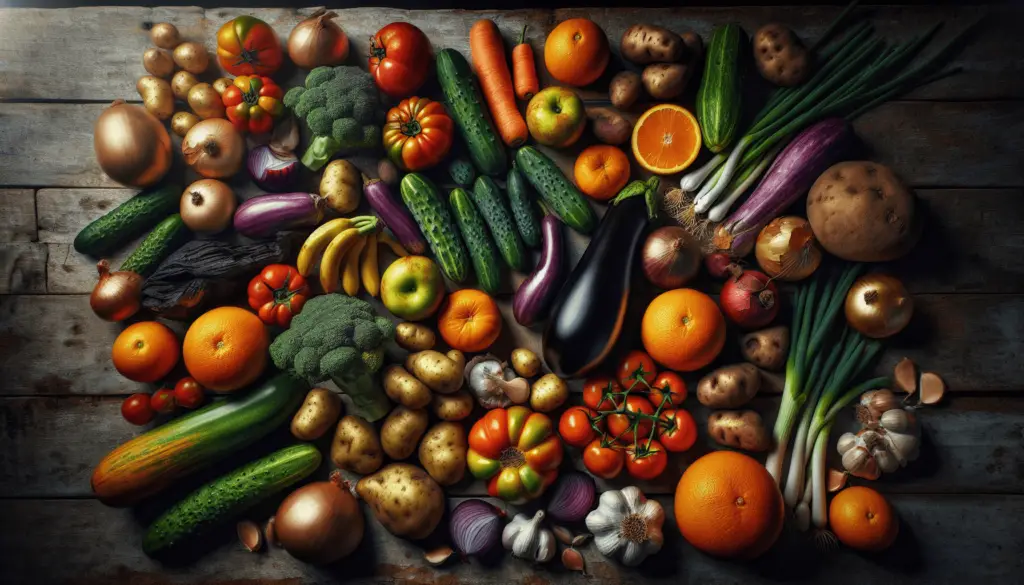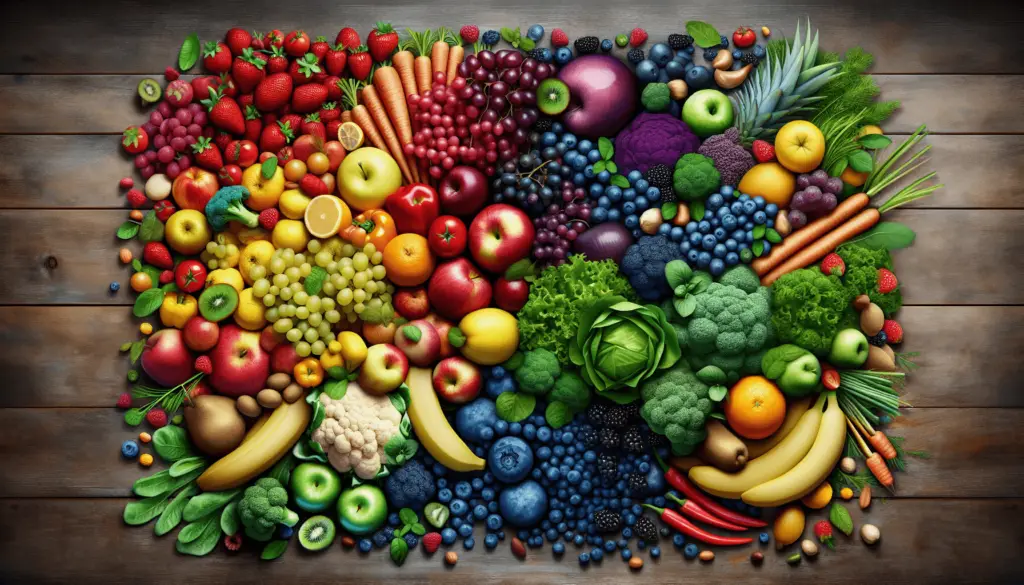Getting Started: Understanding the Importance of Proper Nutrition
Understanding the importance of proper nutrition is crucial in maximizing your health and well-being. By fueling your body with the right nutrients, you can boost your energy levels, support your immune system, and maintain a healthy weight. Let’s explore how you can make the most of your nutritional intake, even with limited resources.
Assessing Your Current Nutritional Intake
Before making changes to your diet, it’s important to assess your current nutritional intake. Keep a food journal for a few days to track what you’re eating and drinking. This will give you valuable insight into your eating habits and help you identify areas where you can make improvements.
Understanding Macronutrients and Micronutrients
Macronutrients, such as carbohydrates, proteins, and fats, provide your body with energy and are essential for overall health. Micronutrients, including vitamins and minerals, are necessary for various bodily functions, such as immune system support and bone health. Balancing both macronutrients and micronutrients is key to maximizing your nutritional intake.
Macronutrients: Finding the Right Balance
When it comes to macronutrients, it’s important to find the right balance for your individual needs. Carbohydrates provide quick energy, proteins help build and repair tissues, while fats support cell function and nutrient absorption. By including a variety of macronutrients in your diet, you can ensure that your body gets all the essential nutrients it needs.
Micronutrients: Meeting Your Daily Requirements
Meeting your daily requirements for micronutrients is just as important as balancing macronutrients. Vitamins and minerals play vital roles in your body’s overall health and function. Eating a diverse range of nutrient-dense foods, such as fruits, vegetables, whole grains, and lean proteins, can help you meet your daily requirements for essential micronutrients.

Making the Most of Limited Resources
Maximizing your nutritional intake with limited resources requires careful planning and creativity. Here are some tips to help you make the most of what you have:
Budget-Friendly Shopping Tips
When shopping on a budget, it’s important to make smart choices to stretch your dollar. Look for sales, buy in bulk, and opt for store brands to save money. Planning your meals ahead of time and making a shopping list can also help you stay within your budget and avoid impulse purchases.
Cooking on a Budget
Cooking at home is often more affordable than dining out, and it gives you control over the ingredients you use. To save money on groceries, consider buying seasonal produce, using pantry staples, and preparing large batches of meals to enjoy throughout the week. Invest in basic kitchen tools and learn how to repurpose leftovers to make the most of your ingredients.
Growing Your Own Food
If you have access to outdoor space or even a sunny windowsill, consider growing your own fruits, vegetables, and herbs. Gardening can be a cost-effective way to supplement your diet with fresh, homegrown produce. You can start small with a few pots of herbs or greens and gradually expand your garden as you gain confidence and experience.
Creating a Balanced Meal Plan
Creating a balanced meal plan is key to maximizing your nutritional intake with limited resources. By planning your meals ahead of time, you can ensure that you’re eating a variety of nutrient-dense foods that provide the essential nutrients your body needs. Here’s how you can create a balanced meal plan:
Include a Variety of Foods
When planning your meals, aim to include a variety of foods from all food groups. Fill your plate with colorful fruits and vegetables, whole grains, lean proteins, and healthy fats. Experiment with different cuisines and cooking methods to keep your meals interesting and flavorful.
Focus on Nutrient Density
Prioritize nutrient-dense foods that are rich in vitamins, minerals, and antioxidants. Choose whole foods over processed foods whenever possible and opt for ingredients that provide the most nutritional value. Incorporate leafy greens, berries, nuts, seeds, and lean proteins into your meals for a well-rounded nutritional profile.
Portion Control
Pay attention to portion sizes to avoid overeating and ensure that you’re getting the right amount of nutrients. Use measuring cups, food scales, or visual cues to help you estimate proper portions. Eating balanced meals at regular intervals throughout the day can help you maintain stable energy levels and prevent spikes in blood sugar.

Shopping Smart: Tips for Maximizing Your Grocery Budget
Stretching your grocery budget can be a challenge, but with the right strategies, you can make the most of your money and still eat well. Here are some tips for shopping smart and maximizing your grocery budget:
Plan Your Meals
Before hitting the grocery store, take the time to plan your meals for the week. Make a list of ingredients you’ll need for each meal, including snacks and beverages. Planning ahead can help you avoid impulse purchases and make sure you have everything you need to prepare nutritious meals at home.
Buy in Bulk
Buying in bulk can save you money in the long run, especially on staple items like rice, beans, oats, and spices. Look for bulk bins at your local grocery store or consider joining a wholesale club to access discounted prices on larger quantities of food. Be mindful of storage space and expiration dates when buying in bulk.
Shop Seasonally
Seasonal produce is often more affordable and fresher than out-of-season options. Visit farmers’ markets, farm stands, or local co-ops to find fresh, in-season fruits and vegetables at lower prices. Stock up on seasonal produce and consider freezing or preserving extras to enjoy throughout the year.
Utilizing Food Assistance Programs
If you’re struggling to afford groceries, there are several food assistance programs available to help you access nutritious food. These programs can provide financial assistance, food vouchers, or access to community resources. Here are some food assistance programs you may qualify for:
SNAP (Supplemental Nutrition Assistance Program)
SNAP provides eligible individuals and families with electronic benefits that can be used to purchase food at authorized retailers. To apply for SNAP benefits, you’ll need to meet income requirements and provide proof of your financial situation. Visit your local SNAP office or apply online to determine your eligibility.
WIC (Women, Infants, and Children)
WIC offers nutrition education, counseling, and supplemental foods to pregnant and postpartum women, infants, and children up to age five. This program aims to improve the health and nutrition of vulnerable populations by providing access to nutritious foods, such as fruits, vegetables, whole grains, and lean proteins.
Food Banks and Pantries
Food banks and pantries distribute free or low-cost food to individuals and families in need. They rely on donations from the community and government agencies to provide a variety of food options, including fresh produce, canned goods, and packaged items. Contact your local food bank to find out more about their services and eligibility requirements.
Staying Hydrated: The Importance of Drinking Enough Water
Staying hydrated is essential for overall health and well-being, as water plays a vital role in various bodily functions. Dehydration can lead to fatigue, headaches, and poor concentration, so it’s important to drink an adequate amount of water each day. Here’s how you can ensure you’re staying hydrated:
Drink Plenty of Water
The Institute of Medicine recommends that men drink about 13 cups (3 liters) of water per day, while women should aim for about 9 cups (2.2 liters) of water. Stay hydrated by drinking water throughout the day, especially before and after meals, during physical activity, and in hot weather. Carry a reusable water bottle with you to encourage regular hydration.
Eat Hydrating Foods
In addition to drinking water, you can stay hydrated by eating water-rich foods, such as fruits and vegetables. Cucumbers, watermelon, oranges, and spinach are examples of foods with high water content that can contribute to your overall fluid intake. Include hydrating foods in your meals and snacks to boost your hydration levels.
Limit Sugary and Caffeinated Beverages
While it’s important to stay hydrated, be mindful of your beverage choices. Sugary drinks, such as soda and fruit juice, can add extra calories and sugar to your diet without providing much nutritional value. Similarly, caffeinated beverages, like coffee and tea, can have diuretic effects and increase fluid loss. Opt for water as your primary source of hydration and enjoy other beverages in moderation.
Conclusion: Maximizing Your Nutritional Intake With Limited Resources
Maximizing your nutritional intake with limited resources is possible with careful planning, smart shopping, and creative thinking. By understanding the importance of proper nutrition, assessing your current intake, and making the most of what you have, you can support your health and well-being without breaking the bank. Remember to focus on nutrient-dense foods, balance your macronutrients and micronutrients, and stay hydrated to optimize your nutritional intake and feel your best every day.
